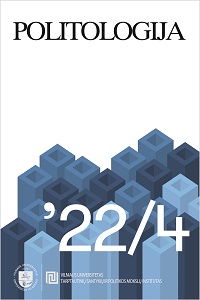The Cultural Element in NATO Military Doctrines: Important, but a Declarative Issue?
The Cultural Element in NATO Military Doctrines: Important, but a Declarative Issue?
Author(s): Agnietė Žotkevičiūtė-BanevičienėSubject(s): International relations/trade, Security and defense, Military policy, Peace and Conflict Studies, Russian Aggression against Ukraine
Published by: Vilniaus Universiteto Leidykla
Keywords: Soft Interoperability; Cultural Element; Cultural Competencies; NATO Military Doctrines;
Summary/Abstract: Despite the historically perceived importance of the cultural element in warfare, after the end of the wars in Iraq, Afghanistan, Syria, and other culturally distant countries, it is believed that the cultural element has lost its importance. According to some experts, the beginning of Russia’s invasion of Ukraine marks a return to conventional warfare, in which a state’s material military capabilities play the most significant role in determining its power. But in fact, in this war, soft interoperability, the most essential aspect of which is the cultural element, gained considerable prominence by demonstrating once again that understanding one’s own culture and values comes before understanding others. This study aims to look at the cultural element more broadly through the prism of interoperability and, specifically, through soft interoperability, and answer the question of how the cultural element, specifically the cultural competencies of military personnel, is manifested in NATO military doctrines, given that NATO is an international security organization with obligations that extend beyond simple defence.
Journal: Politologija
- Issue Year: 2022
- Issue No: 4 (108)
- Page Range: 85-115
- Page Count: 31
- Language: English

